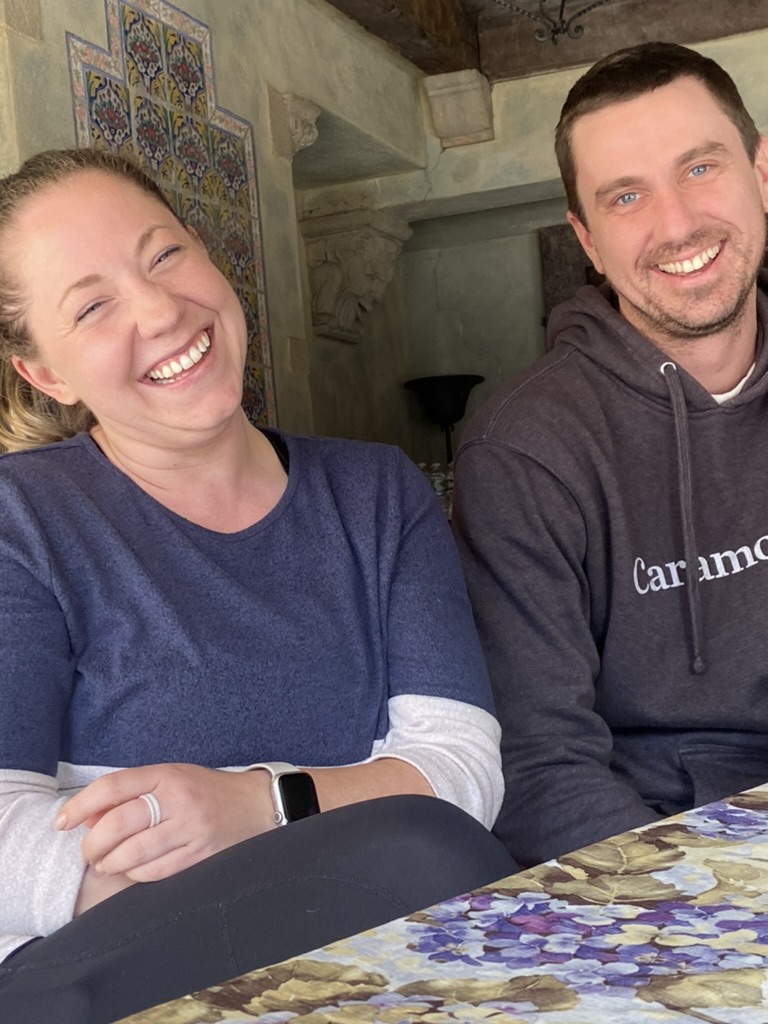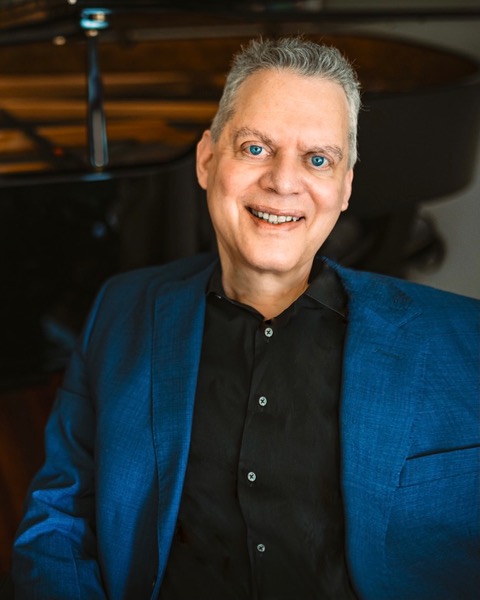Today was dress rehearsal, and after yesterday’s challenges things were looking up. Colin, who spent Friday holed up in his room, reported for work with every indication that he was back in the game. Indeed, he was feeling a lot better and he’d lost the green pallor he sported the day before. But while Colin is on the mend, alas, his voice isn’t quite back. It broke my heart to hear him start his first song—a Neapolitan tune called “Chiove”—in a blaze of vocal glory, but lose coordination and strength in the second page. Right in the middle of an easy, middle-voice phrase his voice broke. Colin got to the end and bravely attacked his next song, Poulenc’s “Vers le sud.” Same deal: everything sounded great, until it didn’t sound at all.
Some singers would take this as an excuse for a little mad scene, but Colin behaved with grace. Meanwhile, of course, we were ready: Bénédicte stepped in to put Plan C into effect. The thing about “Mediterranean” is that we absolutely need to represent eight countries, and Colin was responsible for two of them, France and Italy. Joseph Parrish stepped up to the plate to supply our stopover in France (Duparc’s “Phidylé,” sung with Drambuie-infused elegance), while Shelén did the honors for Italy with Donizetti (“Me voglio fa ‘na casa”) and Puccini (“Chi il bel sogno di Doretta”—ravishing). Colin is going to be able to appear in the show, I’m happy to say; his Greek song by Theodorakis is at full strength, and he has no problem hopping through his lines in the encore by Noël Coward. The program is a little shorter than it was, but the structure survived.
At the end of the afternoon, an interesting moment with Maggie. She has worked very hard on her Lebanese song, “A’tini nnaya,” which came to us via Lebanese-Canadian soprano Joyce El-Khoury. Joyce also spent time with us coaching the piece and helping me with the translation and notes. The melody isn’t hard, but the Arabic text is a challenge, and the musical style is slightly elusive.
The song ends with a short postlude, a ritornello that we play twice—Béné insisted that we repeat it. I had gotten into the habit of gunning the tempo the second time, giving the song a bit of pizzazz, a good old showbiz ploy guaranteed to get applause. After the run today, Maggie approached me.
“Steve…I hope you don’t mind my asking, but…could you not make the accelerando at the end of ‘A’tini nnaya’? It’s such a peaceful song, all about nature, and it doesn’t really need so much drive and brilliance. It should be in the same tempo.”
I didn’t hesitate. “Of course! We’ll do it exactly the way you like! You’ve invested so much time in this song, and you understand it more deeply than I. I trust you, you’re right, and I’ll find a better way to end it.”
A few minutes later Maggie approached me again. “Steve…thank you for listening to me, and letting me have my say.” I started to demur, but she went on. “No, really. Not everyone gives us that kind of control, and lots of people lash out at us when we express our musical ideas. I’m really grateful.”
The word “empowering” has become something of a cliché. But that is a big part of the NYFOS/Caramoor mission. A couple of days ago I heard from a tenor who’d been with us twelve years ago. He’s now out in the world singing leading roles in Europe and America. He wrote: “My confidence soared during those initial sessions, and after NYFOS-at-Caramoor, I felt truly unstoppable.”
Beautiful words. And trust me, it all starts with something as simple as a piano postlude.
Image: Indispensable parts of the Caramoor magic: Ellie Gisler Murphy and Tim Coffey (“Mr. Coffee”), top brass administrators here, as well as leaders of the Charm Squad. It’s like that Neil Simon play “Same Time Next Year,” an annual love affair that lasts one brief week every March.



0 Comments